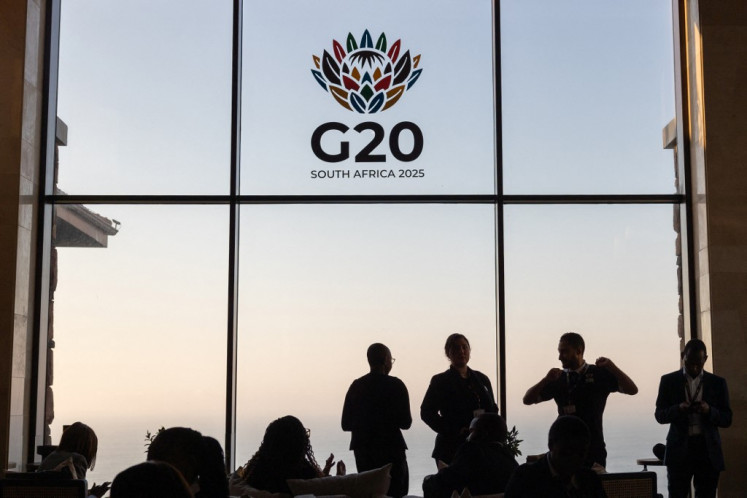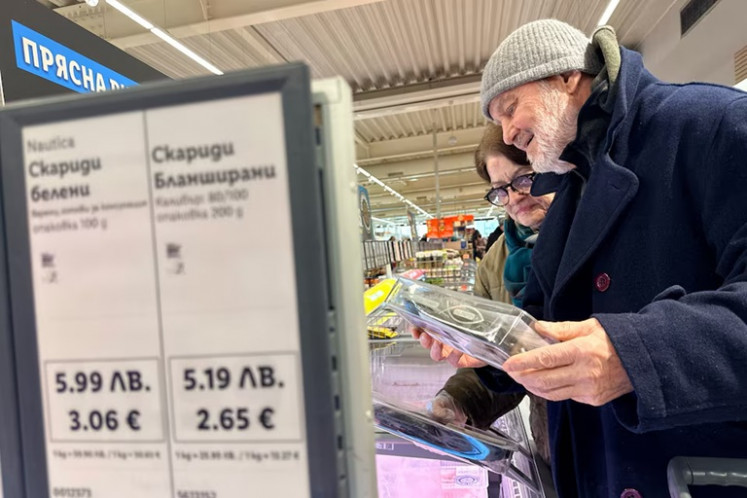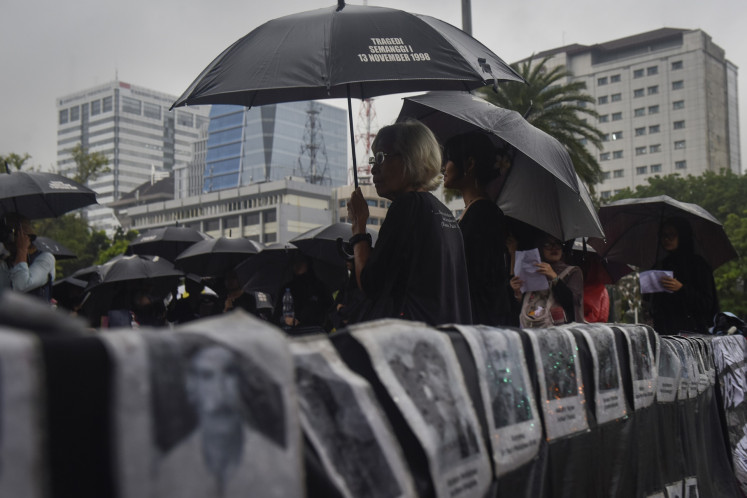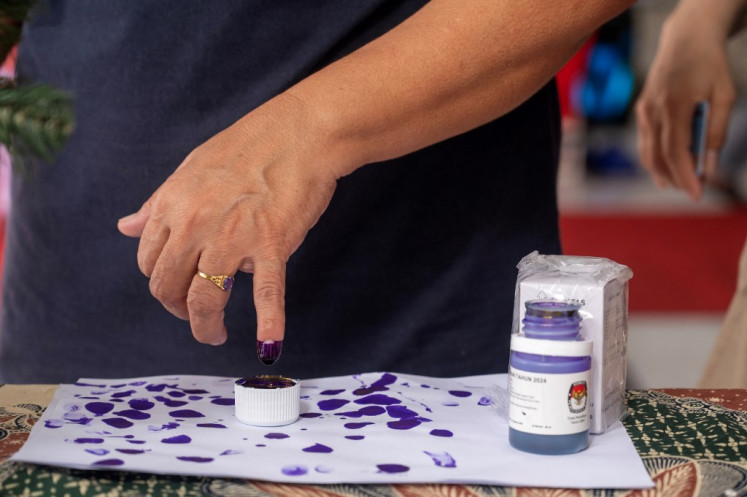Popular Reads
Top Results
Can't find what you're looking for?
View all search resultsPopular Reads
Top Results
Can't find what you're looking for?
View all search resultsEcoliteracy campaign begins in school
Taking them on field trips could be part of this education process; no better way of learning than visiting the nearest landfills.
Change text size
Gift Premium Articles
to Anyone
N
o plastic and straw, please. The drink seller looked stunned. The same thing happened when I refused a plastic bag at a neighborhood mini-market. “Is it okay?” the cashier asked. “Sure,” I replied.
Is it so weird for people to refuse plastic bags in every purchase?
We may profess to be doing no harm to the environment, but many of us continue to use plastic bags for shopping. We may think that we dispose plastics properly and that we have done the responsible thing.
Wrong.
The way we continue to use plastic in our daily activities shows that we as a nation are still, by and large, ecoilliterate. We still cannot fathom the link between nature and humans. Ecoliteracy puts humans as actors responsible to protect the environment and respect all living beings.
Before we claim that we have protected our environment, we need to know what’s good and what’s bad for the environment. Schools are a great place to start promoting ecoliteracy as children will inherit the Earth from their parents.
The Education and Culture Ministry, in collaboration with the Environment and Forestry Ministry, already supports Adiwiyata, a green school program designed to improve ecological awareness.
More than 250,000 schools are taking part, of which 4,305 have won the National Adiwiyata Award.
Since it began in 2006, reduce, reuse and recycle (the three Rs), the program’s contributions include cutting waste piles of 38,745 tons a year, planting 322,875 plants and maintaining 64,575 biospore holes and 12,915 infiltration wells. Each participating school has saved electricity and water usage by between 10 and 40 percent.
These schools have strict environmental protocols, including a ban on using single-use plastics.
However, do the students live by these ecoliteracy principles once they leave the school? Do they still use single-use plastic for shopping for practical reasons? Are they observing the protocols in school only because they are told to rather than out of their own will? Have they fully embraced the concept of being green? And are they having an impact on their immediate surrounding?
The responsibility to promote ecoliteracy among children falls on the teachers. They need to encourage students to think critically besides practicing it. These young people need to see and feel the benefits of ecoliteracy.
Taking them on field trips could be part of this education process; no better way of learning than visiting the nearest landfills.
In Jakarta, take them to the 110-hectare landfill in Bantargebang in the satellite city of Bekasi, West Java. This landfill takes up to 7,000 tons of trash each day collected from households, offices, markets, hotels, restaurants and other sources.
Students will find that the trash of Jakartans, including the plastic they use, ends up here on top of the already 50-meter-high pile. Nothing to be proud of.
Isn’t the plastic waste going to be recycled? Yes, but the recycling rate for plastic waste in Indonesia is still at below 10 percent. What will happen to the other 90 percent that goes untreated each day?
Landfill is but a temporary solution to our garbage problem and even this is now taking up so much space. If people start composting organic waste, we could cut the amount of garbage we send to landfills.
Taught properly, students can be more aware of the environment and can be agents in the campaign to promote ecoliteracy nationwide. When they go back home, they can influence their families to be ecoliterate. They can start small, like inviting their parents and siblings to start sorting their garbage and create composting sites for the organic waste, or bringing a reusable bag while shopping.
These do sound cliché, but have we done those “little” things?
Big things happen with the first small steps. You cannot change people’s behavior overnight, but students can lead the national ecoliteracy campaign.
Landfill is but a temporary solution to our garbage problem and even this is now taking up so much space.
***
Teacher of SMA Pradita Dirgantara high school, a green school in Boyolali, Central Java.










